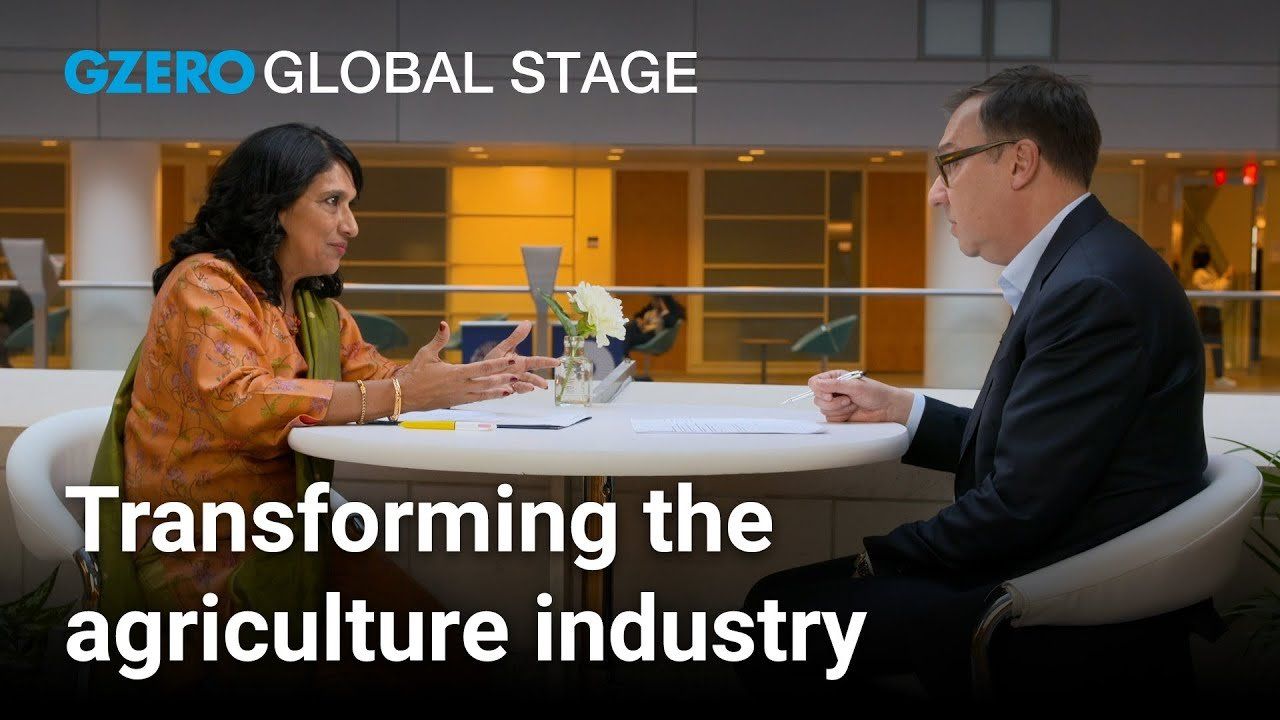
Could the hottest job of the future be...farming? In the next decade, 1.2 billion people globally will age into the labor force, but there will not be enough existing jobs waiting for them. The world's population is expected to climb to 10 billion by 2050, creating a need for at least 60% more food production than we currently have. At the World Bank-IMF Annual Meetings, the bank's President Ajay Banga announced a plan that attempts to tackle both while also creating more sustainable and climate-friendly agriculture. The World Bank is doubling financial commitments for agribusiness and farming, totaling $9 billion by 2030. GZERO's Tony Maciulis spoke to Shobha Shetty, Global Director of Agriculture and Food, about the short-term and long-term needs surrounding food production and distribution. "This is not your grandfather's agriculture," Shetty said in a Global Stage interview. "You have to professionalize the sector. And this is what we are doing through a number of our agricultural education projects." Technology and skilling, she explained, are necessary to create the agriculture jobs of the future while also addressing the acute needs of the hungry today.